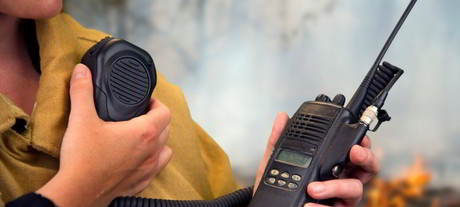US government LMR use surveyed

Most US government departments report having a good or excellent level of LMR interoperability with each other.
The US Government Accountability Office (GAO) has released a report into the use of land mobile radio (LMR) across government departments, including interoperability issues.
It found that the federal agencies it surveyed generally use LMR equipment to meet their core missions, such as public safety, emergency management or firefighting.
The GAO had been asked to examine federal agencies’ LMR interoperability and procurement practices. In particular, it examined:
- LMR equipment used by federal agencies and the state of LMR interoperability among these agencies;
- factors that help and hinder LMR interoperability among agencies; and
- agencies’ LMR procurement practices.
The survey covered civilian federal agencies, identified through their membership in the Emergency Communications Preparedness Center (57 agencies fully responded to the survey and one agency, the FBI, provided a partial response).
The GAO also reviewed Department of Homeland Security planning documents related to interoperability and interviewed federal agency officials with responsibilities related to emergency communications and procurement of LMR equipment.
More than two-thirds of the 57 agencies surveyed reported using equipment from the same manufacturer because, for example, they believe doing so will help ensure compatibility of new LMR equipment with existing system requirements.
Most agencies surveyed were consistent in identifying each other as agencies with which they have or have not needed LMR interoperability over the past 5 years.
Of the agencies that identified the need to communicate with each other, about two-thirds reported generally having a good or excellent level of LMR interoperability.
The use of standards-based and multiband LMR equipment has helped to enhance interoperability among agencies, but the use of proprietary features and other factors continue to hinder interoperability.


Almost all of the agencies that GAO surveyed reported using LMR equipment that meets voluntary technical standards, which have improved interoperability.
Further, almost half of these agencies reported using multiband radios, which operate on multiple public safety radio bands, to enhance interoperability.
However, agencies reported several factors continue to limit their progress in achieving interoperability with other federal agencies.
These factors include the use of proprietary features and encryption in devices and limited investments in LMR systems and devices.
For example, about half of the agencies surveyed reported that the use of proprietary features within LMR devices has hindered interoperability.
Nearly half of the agencies GAO surveyed reported using pre-approved vendors with established prices to acquire LMR equipment, mainly through contracts sponsored by the Departments of Homeland Security and the Interior.
While this approach can facilitate cost savings and interoperability, many of the agencies reported purchasing equipment through multiple agreements, a practice that can reduce these benefits.
About 40% of agencies GAO surveyed reported using sole-source procurement or independent approaches.
According to the Office of Management and Budget (OMB), in general, agencies often purchase and manage items in a fragmented and inefficient manner.
This approach can result in duplication of effort, which imposes significant costs on federal agencies.
OMB has directed agencies to implement ‘category management’ as an improved way to manage spending across government for commonly purchased goods and services.
This approach enables the government to leverage its purchasing power and realise cost savings.
However, OMB’s category management initiative does not include LMR equipment even though federal agencies spend millions of dollars annually purchasing such equipment.
GAO has recommended that OMB examine the feasibility of including LMR in its category management initiative.
By including LMR equipment in OMB’s category management initiative, the government could more fully leverage its aggregate buying power to obtain the most advantageous terms and conditions for LMR procurements.
OMB officials agreed that a category management approach to LMR procurement might save the government money while supporting the goal of enhanced interoperability among agencies that require it, but OMB has not examined the feasibility of applying this approach to the procurement of LMR equipment.
2025–26 Thought Leaders: Tim Karamitos
Tim Karamitos from Ericsson discusses the connectivity requirements of emergency services and...
2025–26 Thought Leaders: Ruth Tovo
Comms Connect panellist Ruth Tovo, from the South Australian SES, discusses the technical...
ARCIA update: celebrating excellence in our industry
The ARCIA Annual Gala Dinner and Excellence Awards took place during the same week as Comms...




